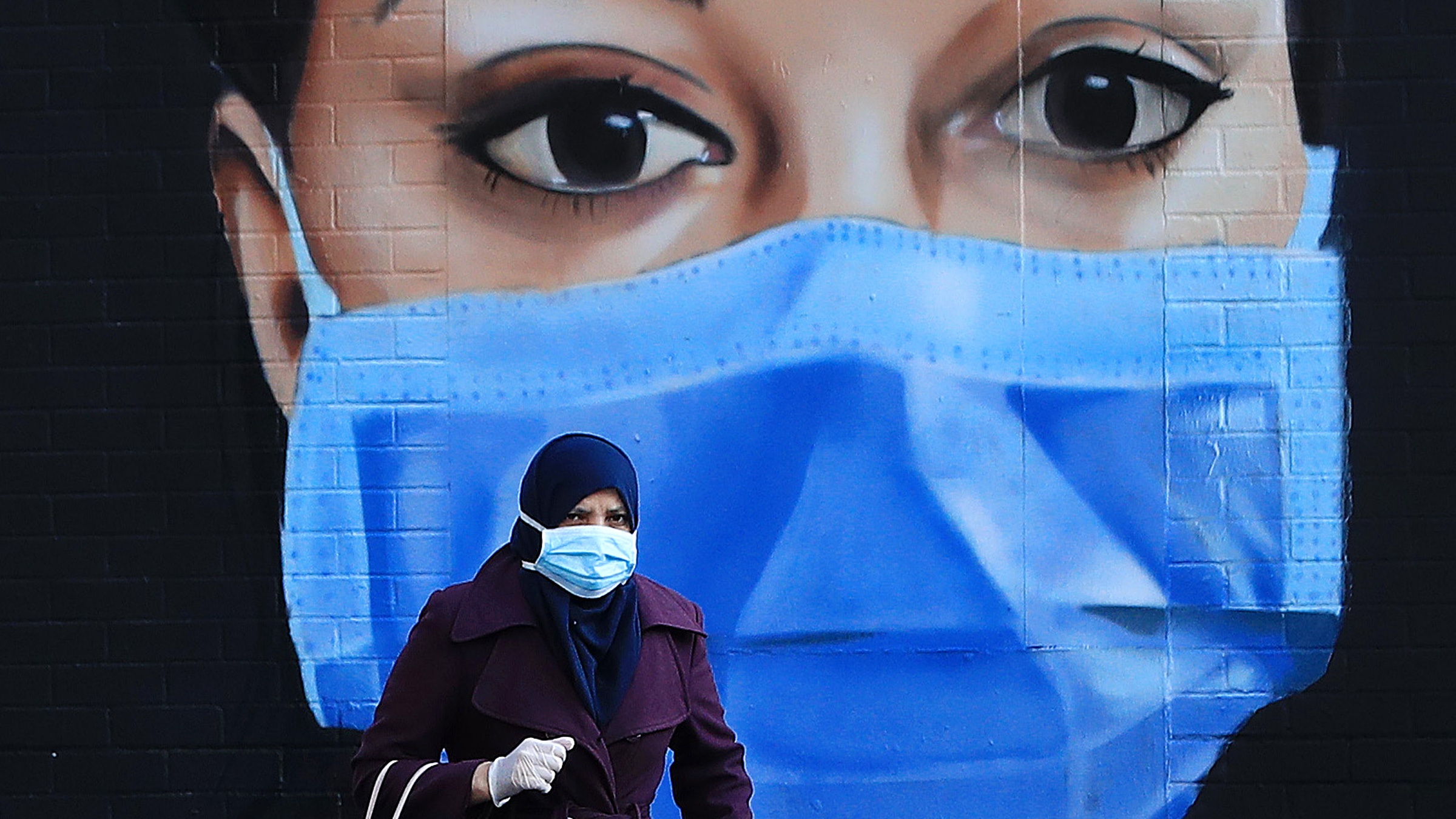Pros and cons of the UK’s long lockdowns
Tory rebels to challenge extension of ‘authoritarian’ shutdown powers

A free daily email with the biggest news stories of the day – and the best features from TheWeek.com
You are now subscribed
Your newsletter sign-up was successful
All eyes are now firmly set on 21 June, when restrictions on social contact are due to be lifted in England under Boris Johnson’s roadmap for ending lockdown.
However, the prime minister has faced criticism from his own MPs, who say the lockdown is not being eased quickly enough amid the successful vaccine campaign.
Here are the arguments for and against the UK’s long lockdown.
The Week
Escape your echo chamber. Get the facts behind the news, plus analysis from multiple perspectives.

Sign up for The Week's Free Newsletters
From our morning news briefing to a weekly Good News Newsletter, get the best of The Week delivered directly to your inbox.
From our morning news briefing to a weekly Good News Newsletter, get the best of The Week delivered directly to your inbox.
Cons
Economic downturn
The first UK-wide lockdown, which began on 23 March 2020, had a devastating financial effect that sent the UK into recession for the first time in 11 years.
As The Telegraph reported at the time, “Britain’s economy contracted by 20.4% during the second quarter – between April and June – leaving it as the world’s worst-hit major economy. Only Spain’s economy contracted more over the first half of 2020.”
The full impact of a year spent in and out of lockdowns is now beginning to emerge, with a report from the Centre for Economics and Business Research revealing that the UK’s gross value added decreased by £251bn in the past 12 months. The reduction is roughly equivalent in size to the entire annual output of the southeast before Covid struck, and nearly twice the output of Scotland.
A free daily email with the biggest news stories of the day – and the best features from TheWeek.com
Disruption to education
Schools across the UK were forced to close for much of 2020 as the virus spread across the nation, with A-level and GCSE exams cancelled or postponed. The exam cancellations resulted in chaos, after around 40% of A-level results predicted by teachers were downgraded by a controversial algorithmic system.
Secondary schools in England have been asked to consider delivering face-to-face summer schools as part of efforts to help pupils catch up. However, BBC News’ north England correspondent Dan Johnson says that “working out how to measure what each child has missed during the pandemic is tricky”, meaning the damage of missed lessons may not be known for some time.
Mental health
According to figures released by the Office for National Statistics in July last year, the number of people in the UK affected by depression within three months of the first lockdown rose from one in ten to one in five compared with the same time last year.
A survey of 6,305 people by the British Association for Counselling and Psychotherapy and YouGov in March, revealed “that of the 67% who said they had experienced any kind of mental health issue in the last five years, 85% said their mental health had been negatively impacted by the coronavirus pandemic”, Metro reports.
Democracy and freedoms curtailed
For many people, having the minutiae of daily life coming under government rule is an alien and confusing experience. Sweeping legislation aimed at tackling the coronavirus handed unprecedented powers to governments and police in countries worldwide.
The government is expected to win approval from MPs to extend the emergency Coronavirus Act legislation - that gives it the power to enact lockdowns - until October.
But it faces “fierce criticism” from Conservative MPs who argue that keeping the powers in place for another six months is “not consistent with the prime minister’s pledge to restore the country’s freedoms as the vaccine programme rolls out”, LBC reports.
Pros
Lives saved
Despite the various downsides, many health experts believe lockdowns have been an effective and necessary measure.
In June, a team at Imperial College London published research that suggested lockdown measures had prevented an estimated 3.2 million Covid-related deaths in Europe, including 470,000 in the UK.
The study assessed the impact of restrictions in 11 European countries - Austria, Belgium, Denmark, France, Germany, Italy, Norway, Spain, Sweden, Switzerland and the UK - up to the beginning of May 2020.
Vaccine rollout
Keeping infections low during the UK’s jab rollout meant that the campaign began to “bear fruit” quickly, allowing Johnson to set out his timeline for ending the UK’s third lockdown, Vaccines Minister Nadhim Zahawi has said.
The prime minister has repeatedly expressed his hope that the current lockdown will be the last, although refused to say whether that was a “cast iron guarantee”.
‘Save the NHS’
Announcing the UK lockdown back in March 2020, Johnson warned that “without a huge national effort to halt the growth of this virus, there will come a moment when no health service in the world could possibly cope, because there won’t be enough ventilators, enough intensive care beds, enough doctors and nurses”.
That message was echoed by intensive care unit (ICU) doctor Tim Cook in an article for The Guardian.
“When resources are overwhelmed and not all patients can be fully treated, doctors may instead have to focus on what is in the best interests of society,” Cook wrote. “If this comes to pass in the UK, doctors will be making some of the hardest decisions we have ever had to make.”
Cleaner air
A positive side-effect of lockdowns worldwide has been a significant drop in levels of air pollution and warming gases in many cities and regions where the pandemic has resulted in reduced travel and industrial production.
Scientists at Nasa recorded “significant reductions” in air pollutants in Earth’s atmosphere since February last year, with global nitrogen dioxide (NO2) levels falling by “almost 20%” in a drop seen most prominently in major cities.
-
 How the FCC’s ‘equal time’ rule works
How the FCC’s ‘equal time’ rule worksIn the Spotlight The law is at the heart of the Colbert-CBS conflict
-
 What is the endgame in the DHS shutdown?
What is the endgame in the DHS shutdown?Today’s Big Question Democrats want to rein in ICE’s immigration crackdown
-
 ‘Poor time management isn’t just an inconvenience’
‘Poor time management isn’t just an inconvenience’Instant Opinion Opinion, comment and editorials of the day
-
 The best places to survive the collapse of society
The best places to survive the collapse of societyIn the Spotlight Experts rank island nations at top of ‘most resilient’ list
-
 Fact check: is PPE causing an environmental pandemic?
Fact check: is PPE causing an environmental pandemic?Speed Read Millions of masks, gloves and hand-sanitiser bottles are piling up in oceans
-
 Coronavirus: British environment flourishing during lockdown
Coronavirus: British environment flourishing during lockdownIn Depth New data shows huge drop in air pollution in UK cities